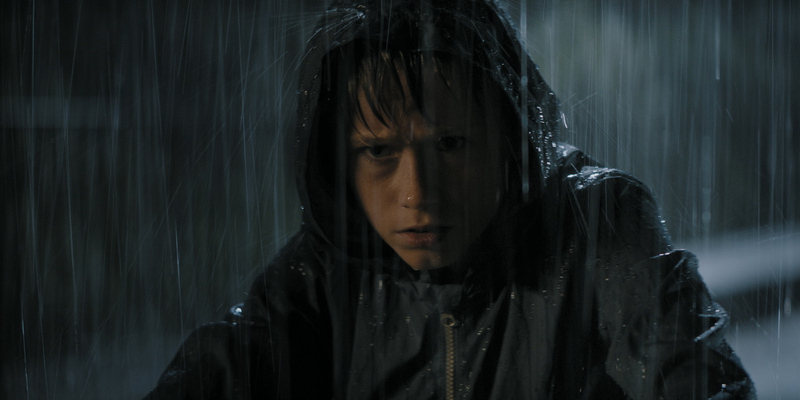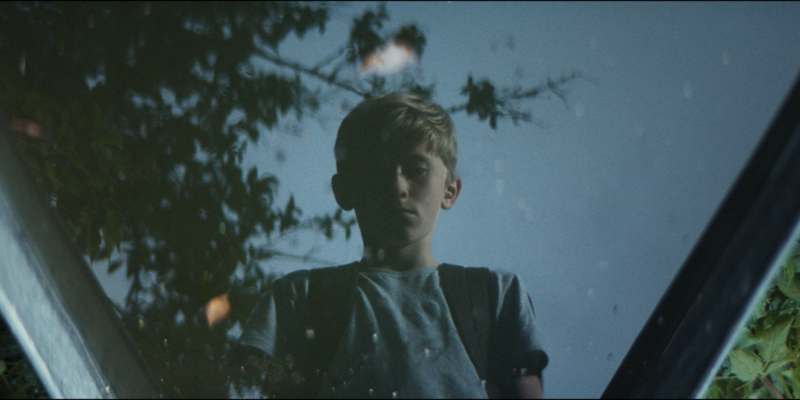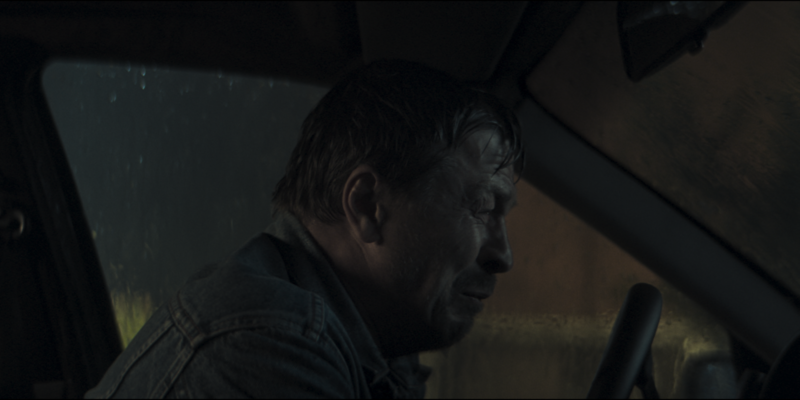
Review by
Benjamin Poole
Directed by: Dace Puce
Starring: Damirs Onackis, Agata Buzek, Egons Dombrovskis, Indra Burkovska, Luize
Birkenberga, Dace Eversa, Luize Birkenberga

The Pit, a Latvian coming of age drama directed and co-written by
Dace Puce with Jana Egle and Monta Gagane, arrives
with the prestige of being the country’s submission for Best International
Feature Film at the forthcoming 94th Academy Awards. And, accordingly,
this review comes with a spoiler warning, because discussing the plot
developments of this curious movie, and how it defers narrative
information in order to confront prejudice, is vital to its evaluation. If
you’re intrigued enough to see it spoiler free, then the headlines are
that it's great, with potently natural performances and a canny way of
reappraising the cliches of small-town bigotry. Who knows, it may even win
that Oscar! Spoilers now follow...

Markuss (Damir Onackis) is a 10-year-old boy who has been packed
off to live in the sticks with his grandmother. An opening where a heavily
populated church choir practices serves to connote the community: they are
close knit, but beholden to rules and tradition. Markuss finds himself on
the receiving end of this credo when the townsfolk discover that he’s
lured a kid his age to fall into the titular pit, causing a minor panic
when the girl was discovered missing and mass approbation when she was
discovered unharmed. It is bad, you’d have to admit, tricking a small
child into such a trap. But the somewhat understandable reasons for
Markuss’ behaviour are kept vague, with Puce and her screenwriters not
allowing us an easy resolution until much later in the film.
The plot’s non-linear skips are suggestive of the town itself, where
secrets and suppressions from the past begin to destabilise the present.
We see this with the character of Sailor (Indra Burkovska), an
older man whom Markuss subsequently befriends. Ostensibly a town loner
whose lachrymose nature is initially suggested by this old sea dog unable
to take to the waves, we eventually find out that Sailor is a trans man,
who grew up recognised as a girl.

Sailor’s gender has gone down like the Titanic in this cold-hearted town.
Initially Puce deliberately keeps the true nature of Sailor ambiguous, and
we purposefully see him via Markuss’ standpoint: a shadowy adult, usually
seen via the forced perspective of a neutral child. As it should be, of
course, because what business is it of ours or anyone else’s who Sailor
is? However, what could have been a pedestrian ‘all equal in the eyes of a
child’ message becomes more than that in Puce’s hands, who takes care to
develop the relationship between the ostracised characters, depicting with
diligence the time they spend together as they construct a stained-glass
mosaic.
The complexity is extended to the townspeople, whose homophobia is
depicted with a sad authenticity (and it is homophobia in this instance;
these rubes just haven’t got as far as transphobia yet. Sailor is deemed a
‘faggot’, which is an ironic recognition of his gender, I suppose). This
is a depiction of a town afraid of itself, fatally suspicious of each
other, and turning a blind eye to exactly the wrong sorts of social ills.
They are a people confused, and repressed, and the sympathy which
The Pit affords these poor imbeciles is far more valuable
than a simple, blanket condemnation.

Nevertheless, there is a domestic violence subplot where the denouement
made me gasp in its jejune candour: but this is a minor misstep in this
otherwise gorgeously produced film which you can look forward to curling
up in. Like the varied aspects of the stained-glass window which Sailor
and Markuss piece together, when The Pit catches the light
the integrated pieces of its fragmented narrative shine.

The Pit is on Film Movement Plus
from December 17th in the US. A UK/ROI release has yet to be announced.

